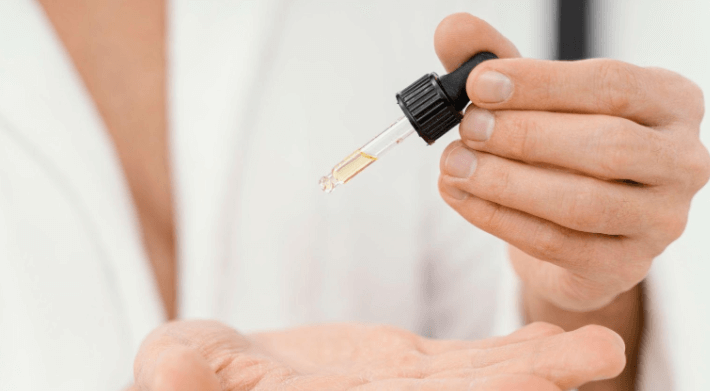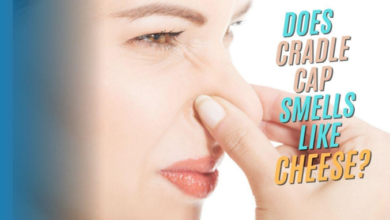How to Fight Skin Imperfections

Did you know that our skin oxidates? We are frequently exposed to skin oxidation, but what is it? What happens to our skin when it oxidates? What causes this oxidation? Let’s learn together about the origins, consequences, and treatments of skin oxidation.
What Oxidates Skin?
Skin oxidation, or oxidative stress in the skin, occurs when there is an imbalance between free radicals and antioxidants, leading to cellular damage. There are many factors that can cause skin oxidation.
- Exposure to UV radiation: Ultraviolet (UV) rays from the sun are one of the main sources of free radicals. Prolonged sun exposure can cause oxidative damage to skin cells, leading to premature aging, pigmentation changes, and an increased risk of skin cancer.
- Pollution: Pollution, including smog, dust, and other airborne toxins, can generate free radicals when they come in contact with the skin. These pollutants can penetrate the skin, causing inflammation and oxidative stress.
- Smoking: Tobacco smoke contains a high concentration of free radicals and other toxic substances that can damage skin cells. Smoking accelerates the aging process and contributes to wrinkles, discoloration, and a loss of skin elasticity.
- Poor diet: Some foods like fruits, vegetables, nuts, and seeds have antioxidants. Consequently, a diet lacking in antioxidants can reduce the body’s ability to neutralize free radicals. Conversely, a diet high in processed foods, sugar, and unhealthy fats can contribute to oxidative stress.
- Stress: Chronic psychological stress can increase the production of free radicals and decrease the efficiency of antioxidant defenses, leading to oxidative damage.
- Alcohol consumption: Excessive alcohol intake can deplete the body’s antioxidant stores and increase the production of free radicals, contributing to oxidative stress in the skin.
- Inflammation: Chronic inflammation, whether due to underlying health conditions or skin disorders like acne and eczema, can lead to increased free radical production.
- Aging: The natural aging process reduces the skin’s ability to produce antioxidants and repair oxidative damage, making it more susceptible to the effects of free radicals.
The Consequences of Oxidated Skin
Oxidative stress in the skin occurs when there is an imbalance between free radicals and antioxidants in the body. Free radicals can damage cells, proteins, and DNA, contributing to various skin issues. Although it does not sound like a big issue, oxidation can have effects on the skin. Some of the most common effects are:
- Aging: Oxidative stress accelerates the aging process, leading to the formation of wrinkles, fine lines, and sagging skin. Collagen and elastin, the proteins that maintain skin’s firmness and elasticity, are particularly vulnerable to free radical damage.
- Hyperpigmentation: Oxidative stress can lead to the overproduction of melanin, resulting in dark spots, age spots, and uneven skin tone.
- Inflammation: Free radicals can trigger inflammatory responses in the skin, which may exacerbate conditions such as acne, rosacea, and psoriasis.
- Loss of moisture and barrier function: The skin’s natural barrier can be compromised by oxidative stress, leading to increased moisture loss and making the skin more susceptible to irritants and infections.
- Reduced healing capacity: The skin’s ability to repair itself can be impaired, leading to slower healing of wounds and increased scarring.
https://www.freepik.es/foto-gratis/flores-aceites-tratamiento-spa-arreglo-cosmetica_9805402.htm#fromView=search&page=1&position=3&uuid=4877bdb8-a43c-468e-a76b-ba9fbb2362cf
What Can We Do to Prevent Skin Oxidation?
- Use sunscreen: UV radiation from the sun is a significant source of free radicals, so protecting the skin with sunscreen can help.
- Adopt a healthy diet: Foods rich in antioxidants, such as fruits, vegetables, nuts, and seeds, can help neutralize free radicals.
- Use antioxidant skincare: Topical antioxidants like vitamin C, vitamin E, and green tea extract can protect the skin.
- Avoid smoking and pollution: Smoking and environmental pollutants can increase free radical production.
- Maintain a healthy lifestyle: Regular exercise, adequate sleep, and stress management can support overall skin health.
Two Key Beauty Products
Among the skincare products that can be used as antioxidants for the skin, we can list sunflower oil and Camellia sinensis.
As regards sunflower oil, there is one type of sunflower oil for cooking and there is sunflower oil for skin. This is lightweight and non-greasy, so this makes it ideal for moisturizing the skin without clogging pores. Moreover, as it contains vitamin E and other antioxidants, sunflower oil helps protect the skin against free radicals and damage caused by the sun and other environmental factors. It is the perfect ally to reduce signs of premature aging, such as wrinkles and skin discoloration.
On the other hand, we find camellia sinensis. But, what is Camellia Sinensis? Camellia sinensis is a species of evergreen shrub or small tree whose leaves and leaf buds are used to produce green tea. When we use skin products that contain green tea, we also fight the signs of aging, like wrinkles and fine lines. Additionally, this ingredient soothes irritated skin and reduces inflammation, which makes it perfect to treat skin that is sensitive, prone to redness, or with inflammatory conditions such as acne or rosacea.




